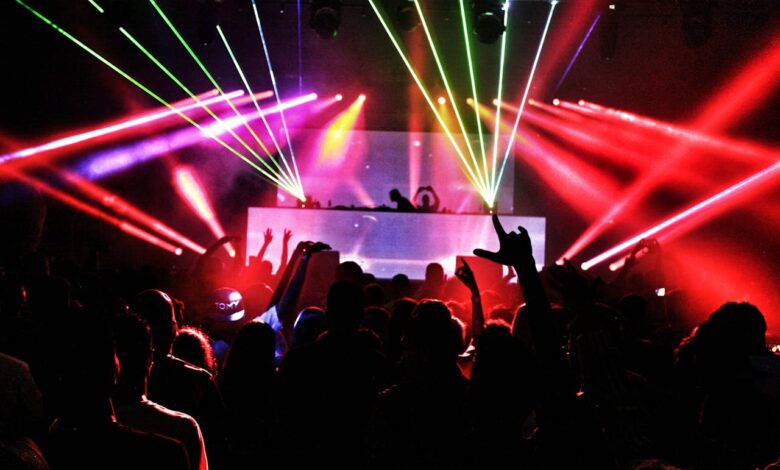Media and Entertainment Hub

The media and entertainment hub industry has witnessed a phenomenal rise in recent years, transforming into a bustling hub of creativity and innovation. With the advent of streaming platforms, social media, and digital technologies, content consumption has evolved into a multi-faceted experience that transcends traditional boundaries. This evolution has not only democratized access to entertainment but also propelled talented individuals from all corners of the globe into the spotlight.
The rise of user-generated content platforms like YouTube and TikTok has revolutionized the way we consume media, blurring the lines between creators and consumers. Audiences are no longer passive spectators but active participants in shaping trends and narratives within the industry. As a result, fresh voices and perspectives have found prominence in this dynamic landscape, challenging conventional norms and paving the way for inclusivity and diversity in storytelling. The media and entertainment hub is now a vibrant ecosystem where ideas flow freely, driving innovation and pushing boundaries like never before.
Evolution of Technology in Entertainment Hub

The evolution of technology in the entertainment hub has profoundly transformed the way we consume and interact with media. From the early days of black-and-white television sets to the rise of streaming services like Netflix and Hulu, technology has continuously pushed boundaries in creating more immersive and personalized experiences for users. The integration of virtual reality (VR) and augmented reality (AR) technologies has opened up entirely new avenues for storytelling, allowing audiences to be fully immersed in their favorite TV shows, movies, or games.
Artificial intelligence (AI) is revolutionizing content creation and recommendation algorithms, providing users with tailored suggestions based on their viewing habits. The use of big data analytics has also enabled companies to better understand consumer preferences and behavior patterns, leading to more targeted marketing strategies. As we move towards a future driven by innovation and digital advancements, it’s clear that technology will continue to play a pivotal role in shaping the landscape of entertainment hubs worldwide.
Influence of Social Media on Content Consumption
The influence of social media on content consumption cannot be denied in today’s digital age. Social media platforms have revolutionized the way we discover, consume, and share content. With just a few clicks, users can access a vast array of information, entertainment, and news from around the world. The algorithms used by these platforms play a significant role in shaping our content consumption habits. They tailor our feeds based on our interests and behaviors, creating personalized experiences that keep us coming back for more.
Moreover, social media has also democratized content creation, allowing anyone with an internet connection to become a creator or influencer. This has led to an explosion of user-generated content that can quickly go viral and influence millions of people within days or even hours. As a result, traditional media channels are increasingly adapting their strategies to compete with this new wave of digital influencers. Brands are also leveraging social media as a powerful marketing tool to reach their target audiences directly through engaging and shareable content. In essence, social media has not only changed how we consume content but has also reshaped the entire media landscape as we know it.
Changing the Game
Streaming platforms have undeniably changed the game in the world of media and entertainment. With the rise of popular platforms like Netflix, Hulu, and Amazon Prime Video, audiences now have access to a vast library of content at their fingertips. The convenience of being able to stream movies, TV shows, and original programming on-demand has revolutionized how we consume entertainment.
Streaming platforms have disrupted traditional models of distribution and production in the industry. For independent filmmakers and content creators, these platforms offer new opportunities to reach a global audience without the need for large-scale marketing campaigns or distribution deals. This democratization of content creation has led to more diverse voices being heard and innovative storytelling emerging in ways that were previously unimaginable. As audiences continue to gravitate towards streaming services for their entertainment needs, it’s clear that the influence of these platforms will only continue to grow in shaping the landscape of media and entertainment.
Globalization of Entertainment Hub Content

In today’s interconnected world, the globalization of entertainment hub content has revolutionized the way we consume media. With platforms like Netflix, Amazon Prime Video, and Disney+ reaching audiences across the globe, cultural boundaries are becoming increasingly blurred. People from different corners of the world can now enjoy a vast array of cinematic experiences without being limited by geographical constraints.
This shift towards a globally connected entertainment hub has not only expanded opportunities for creatives but also diversified storytelling perspectives. International collaborations between filmmakers, writers, and actors have resulted in groundbreaking content that transcends traditional norms and resonates with audiences worldwide. The convergence of cultures in entertainment hub content is creating a rich tapestry of narratives that reflect the complexities and beauty of our diverse world.
Future Trends in Media and Entertainment Hub
As we head towards the future, one trend that is set to revolutionize the media and entertainment industries is the rise of virtual reality (VR) experiences. Imagine being able to transport yourself to a concert or movie theatre from the comfort of your own home. With advancements in VR technology, this immersive experience will soon become a reality for audiences around the world.
Another intriguing development on the horizon is the increasing integration of artificial intelligence (AI) in content creation and recommendation algorithms. AI can analyze vast amounts of data to predict viewer preferences, leading to personalized content recommendations that keep audiences engaged. This tailored approach has the potential to redefine how media and entertainment companies interact with their viewers, creating more meaningful and impactful connections in an increasingly saturated market.
The Ever-Evolving Landscape of Entertainment hub

The landscape of entertainment hubs has witnessed an unprecedented evolution in recent years, thanks to advancements in technology and shifts in consumer behavior. From traditional TV networks to streaming platforms, the competition for viewership has become increasingly intense. This constant need for innovation and adaptation drives the industry forward, pushing content creators to think outside the box and explore new ways to engage audiences.
As we move into the future, it’s clear that entertainment hubs will continue to evolve at a rapid pace. Virtual reality and augmented reality are poised to revolutionize how we consume media, offering immersive experiences that blur the lines between reality and fiction. The rise of social media influencers as key players in shaping trends and preferences underscores the changing dynamics of audience influence within this ever-evolving landscape. Ultimately, staying ahead of the curve and embracing change will be crucial for any entertainment hub looking to thrive in this dynamic environment.



